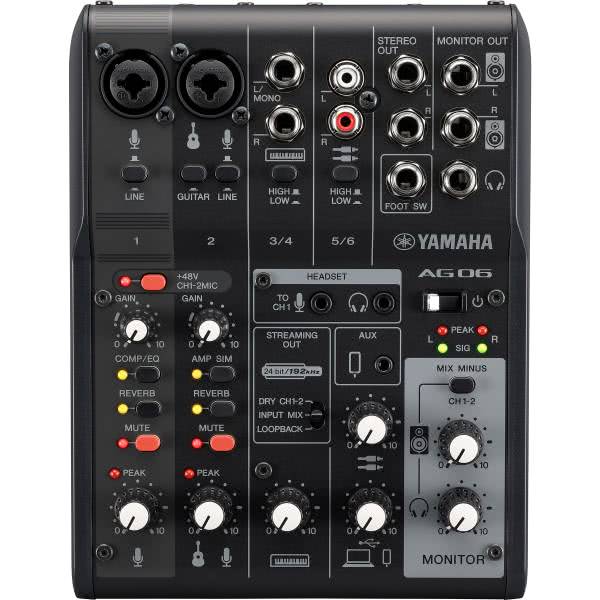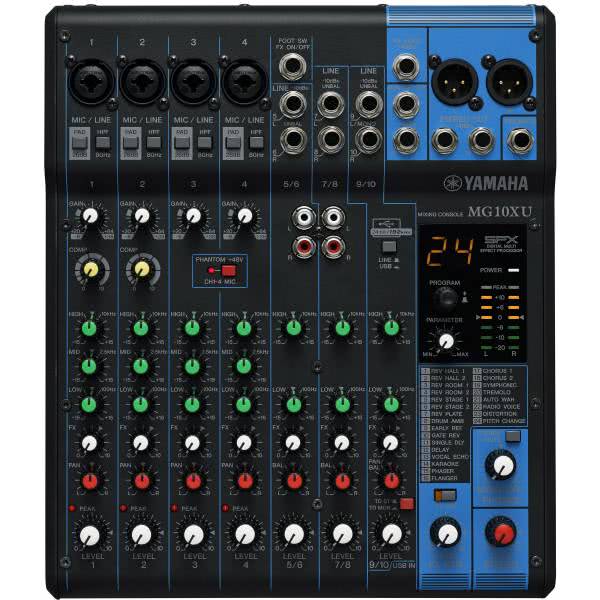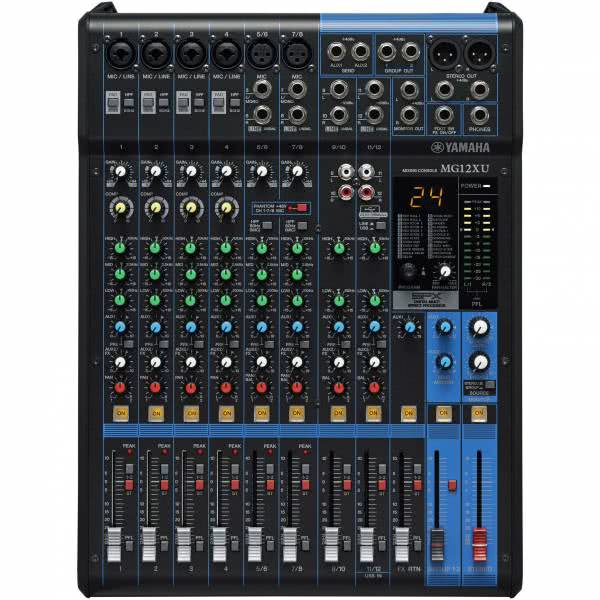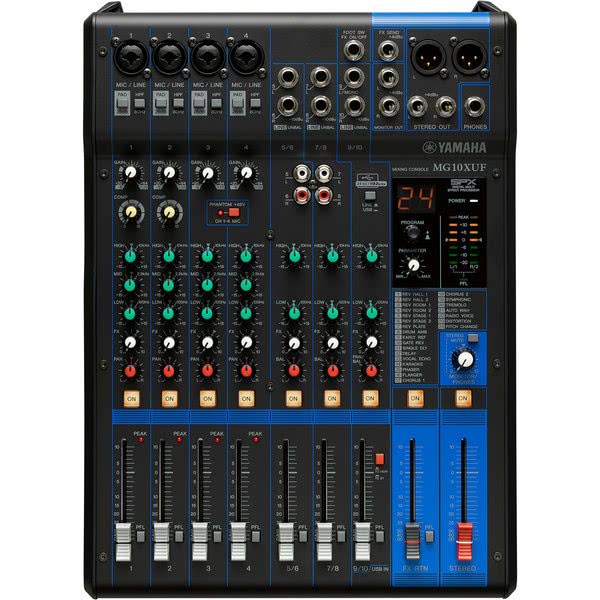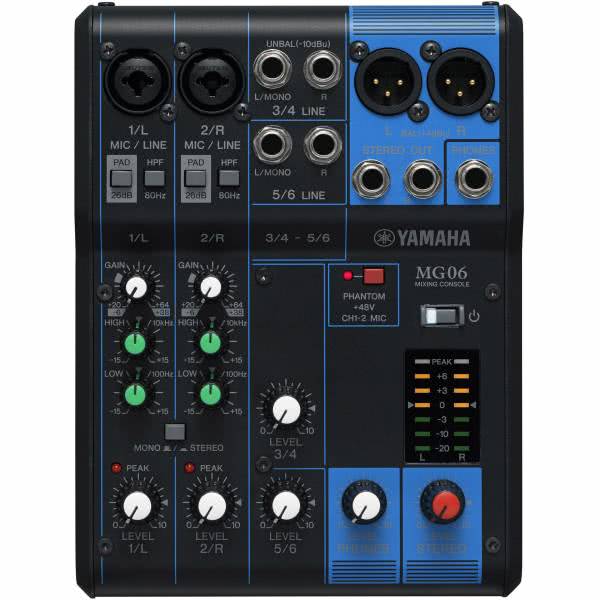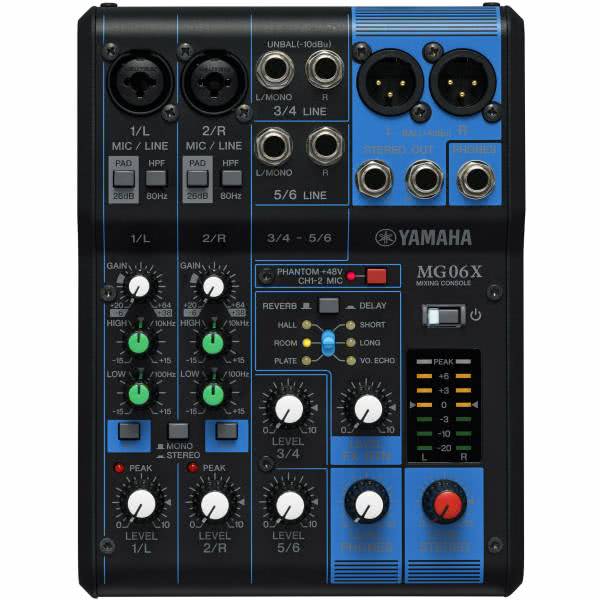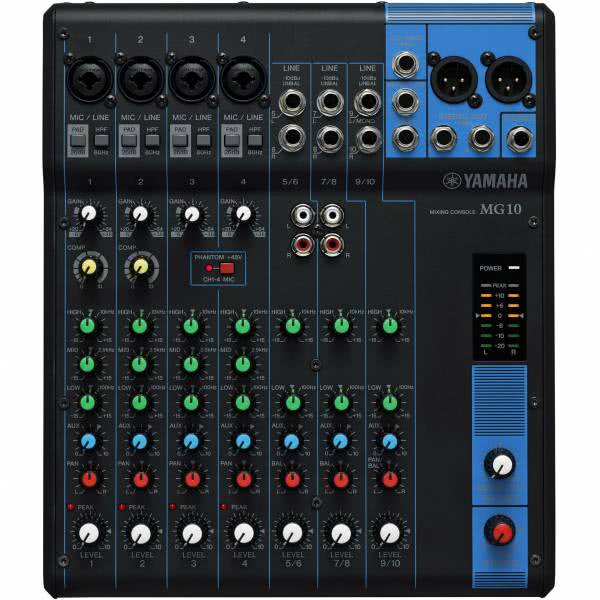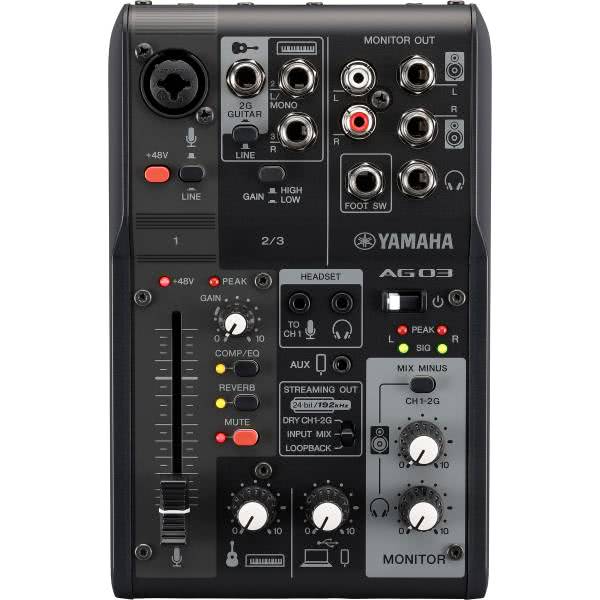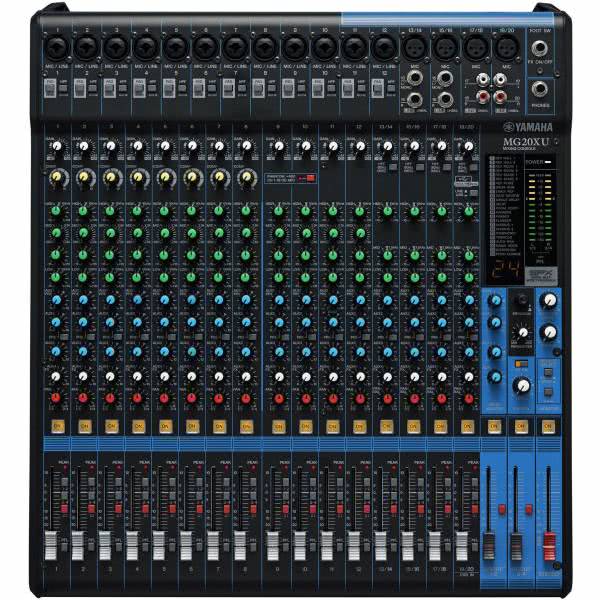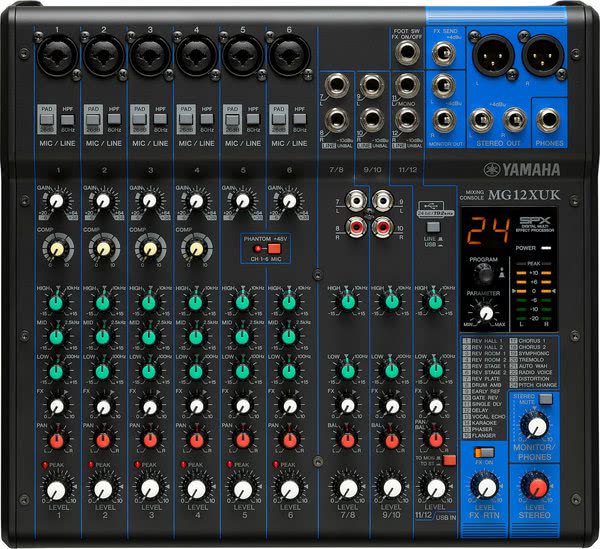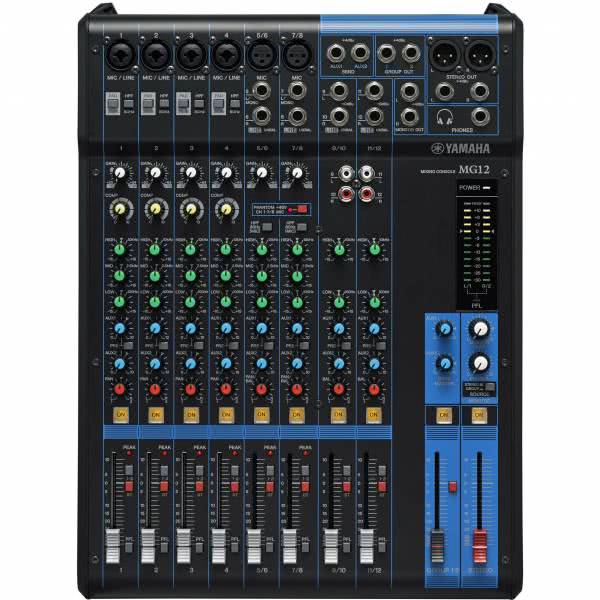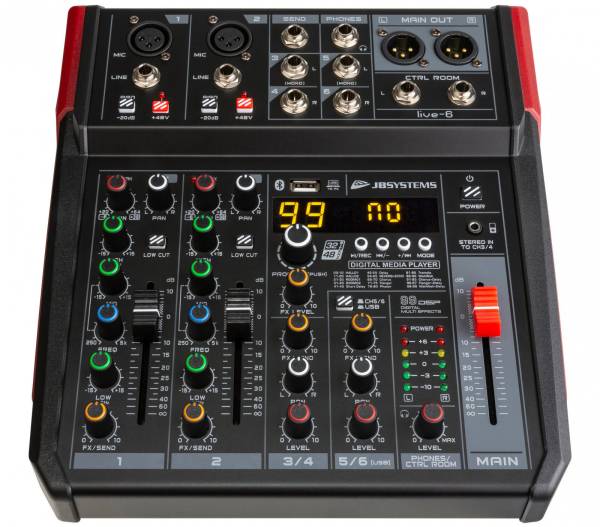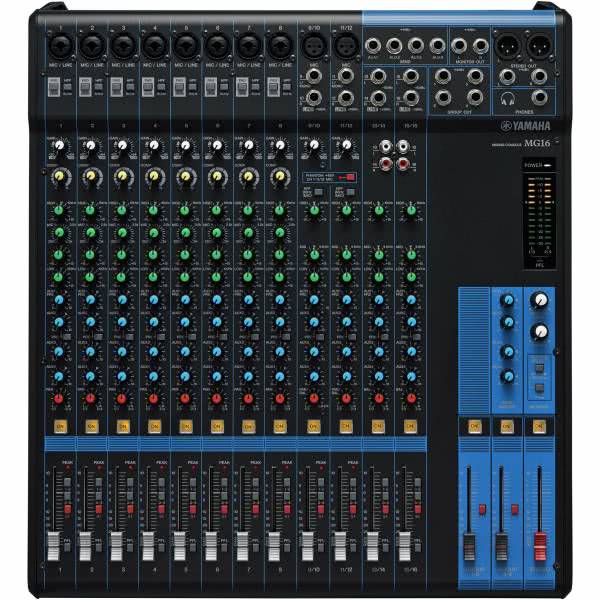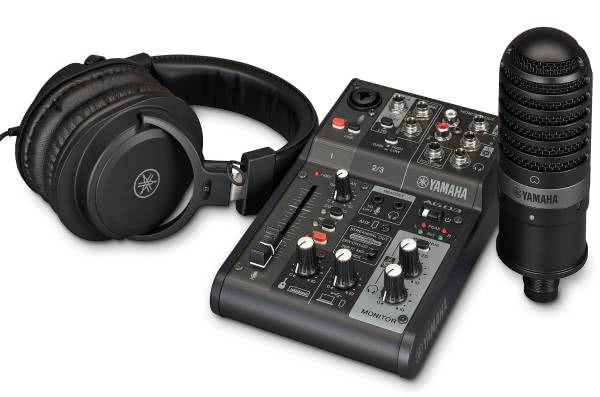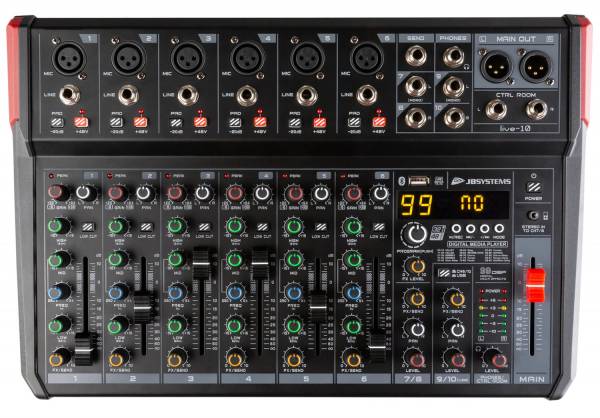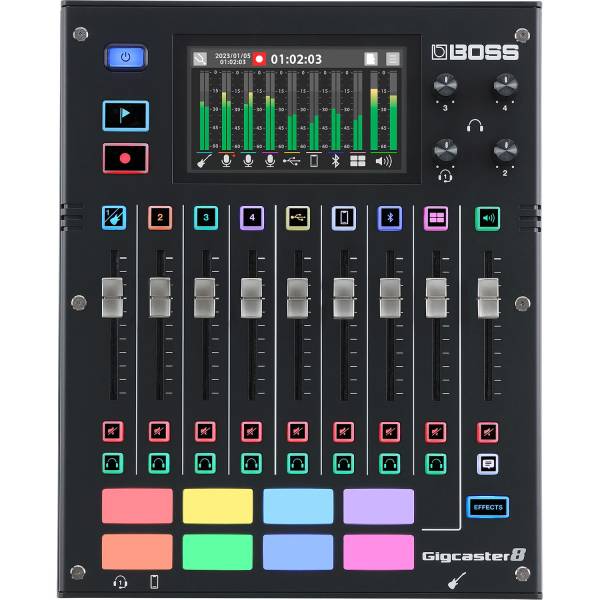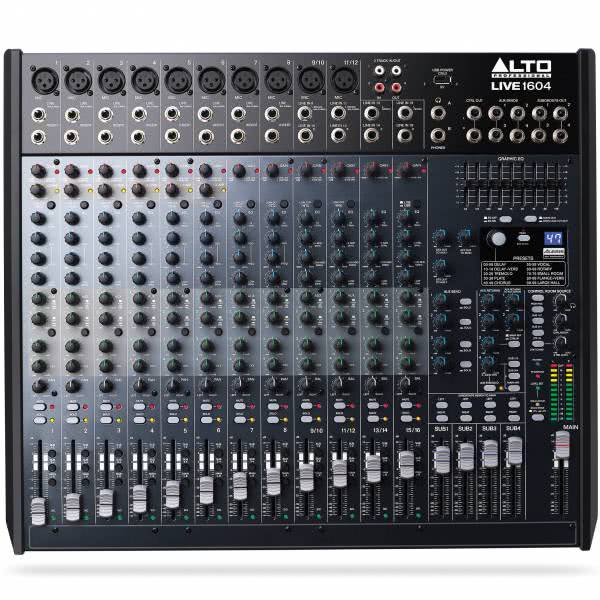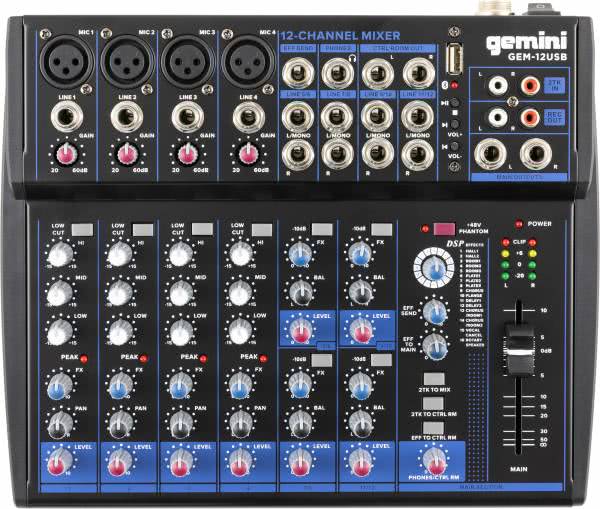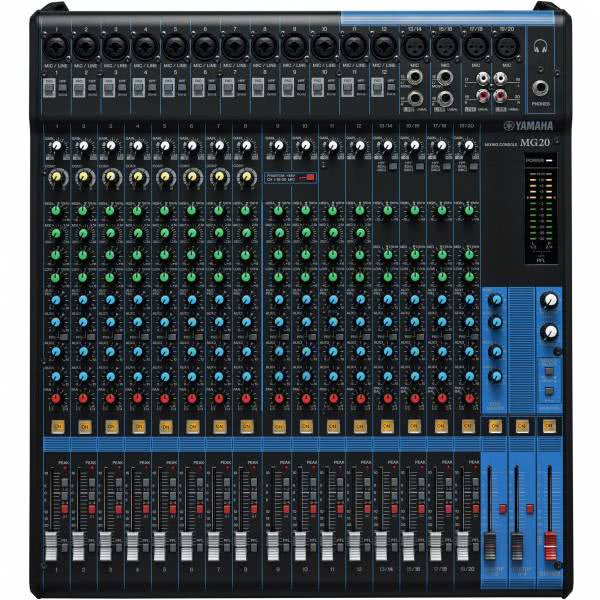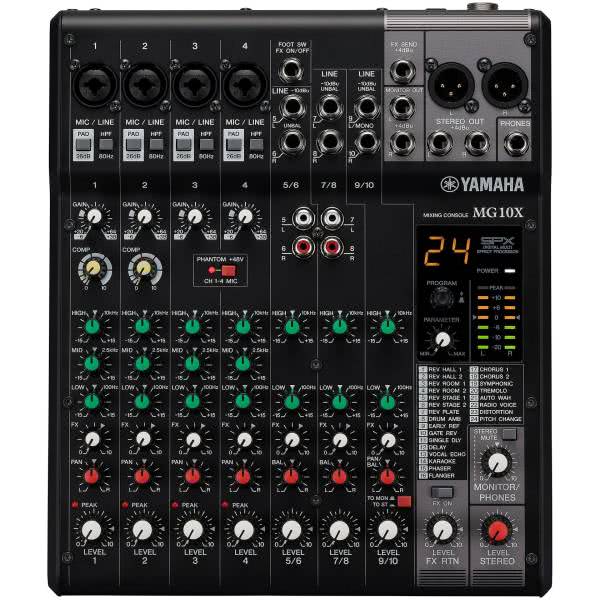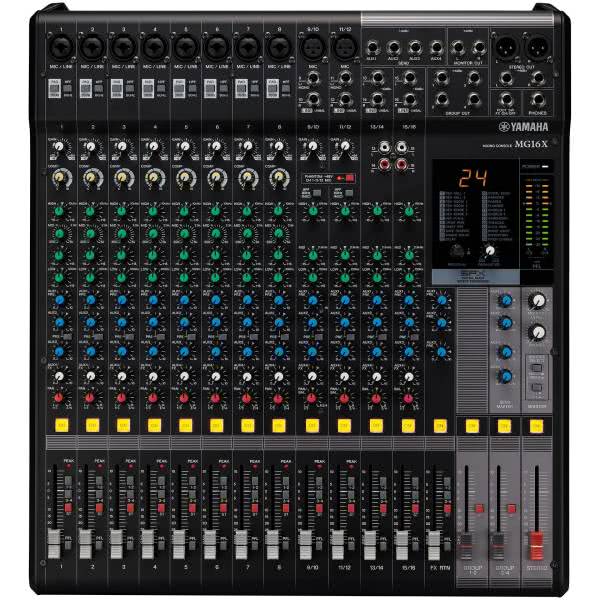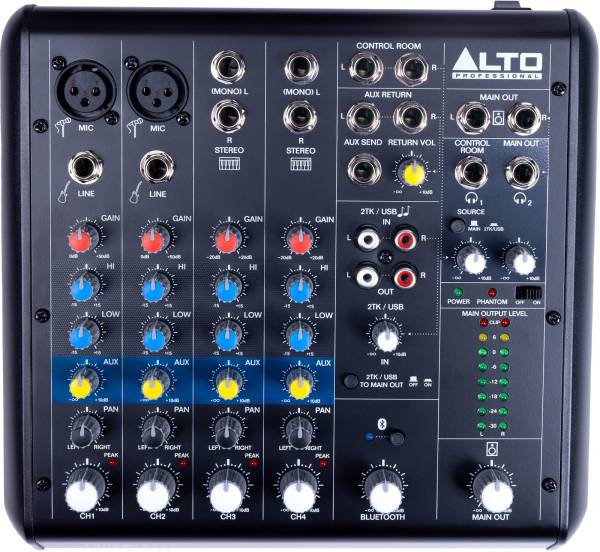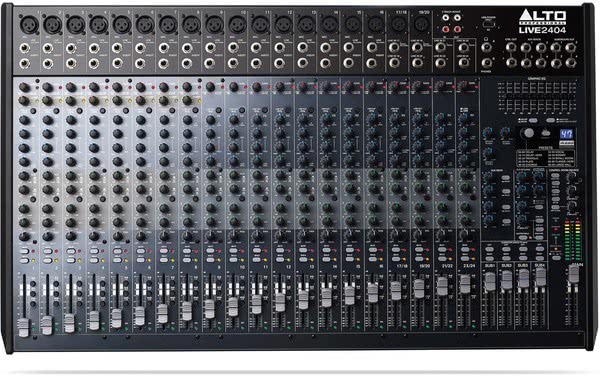Why do I need a mixer?
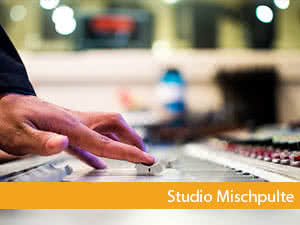
A studio mixer records several signals simultaneously and combines them to an output signal. For example, in a band you can record the guitar, bass and vocals separately from each other and adjust the volume separately with so called faders.
Mixers have different channels. The number of channels corresponds to the amount of signals they can receive. In addition to the combination of signals (also known as mixing), mixers often include sound shaping processors such as equalizers, compressors and much more. After they are mixed, the combined signals are sent to the recording device. Mixers also have outputs for listening to your recorded material.
With the EQs on your mixer, you can change the frequencies and make the sounds louder and clearer. The smaller versions with up to 4-6 channels are suitable for solo artists whose instruments have XLR and jack inputs.
Effect mixers have features such as reverb, delay, chorus and other effects to add the finishing touches to your live mix. For larger events and musicians who go on tour, mixing consoles with up to 32 channels are available.
Analog vs. Digital - 1 mixer, 2 worlds
Mixers are generally divided into 2 categories: analogue and digital. Analog mixers use voltage variations to represent changes in sound pressure.
Advantages and disadvantages of analog mixers
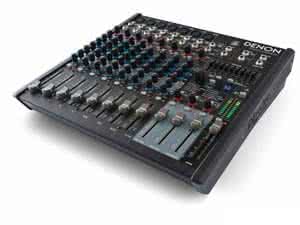
The main advantages of the analogue mixers are their easy operation and sound. Once you've learned the basics of an analog mixer, you can easily and quickly get along with any other mixer. Last but not least, countless legendary hits were recorded with the help of analogue mixers. The warm, analog sound can still inspire today and can still be found in countless top studios around the world.
There is also a disadvantage with analogue mixers. You need maintenance now and then. Of course you will also find the appropriate accessories and spare parts at Recordcase.
Many mixing consoles have built-in interfaces to record or connect to the computer. Our wide range of USB, Firewire and digital mixing consoles can record your live performances or studio productions.
Advantages and disadvantages of digital mixing consoles
A digital mixer uses - you guessed it - digital signal processing to combine and process audio signals. Digital mixers are electronic devices and can be partially or partly, depending on the manufacturer and type, complex to operate. You can save your settings and presets and restore them if necessary. Many digital mixing consoles also have EQs, compressors and reverb and a lot of other effects on board.
Many sound engineers today use a hybrid approach that combines analog and digital mixers to bring the best of both worlds.

